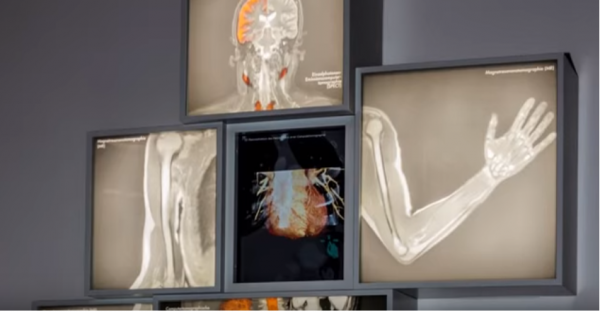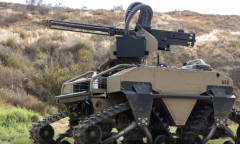By Prei Dy, | June 04, 2017

A new AI tech could predict whether or not a person will die soon. (YouTube)
A new artificial intelligence system claimed to predict people's lifespan based on the medical images of their organs.
A team of AI researchers from the University of Adelaide in Australia analyzed medical images of 48 patients' chests and was able to predict who among them will die within the next five years. The AI yield a 69 percent accuracy rate. The results are comparable with traditional predictions made by doctors.
Like Us on Facebook
Accurate assessment of biological age and longevity prediction has been limited as doctors could not thoroughly check and measure the health of each organ.
The AI uses deep learning programs, also dubbed as "limited AI," and draws its conclusions based on the huge repositories of data previously input on the system. However, the team is not certain what the computer program was looking at to make its predictions; but the most successful ones were made for patients suffering from chronic diseases including emphysema and heart failure.
"Our research suggests that the computer has learned to recognize the complex imaging appearances of diseases, something that requires extensive training for human experts," Dr. Luke Oakden-Rayner, lead author, said.
The study also has significant implications for the early diagnosis and medical intervention of serious diseases. The automated system could quickly assess individual organs by incorporating the huge volumes of data and detect subtle patterns, thus helping medical professionals create a detailed and customized treatment plans.
"Our research opens new avenues for the application of artificial intelligence technology in medical image analysis, and could offer new hope for the early detection of serious illness," Oakden-Rayner said.
Researchers plans to bring the AI system to the next level of research, with plans to analyze tens of thousands of patient images. The team also planned to use the same technique to predict other medical conditions, including the onset of heart attacks.
The study is published in the journal Scientific Reports.
-
Use of Coronavirus Pandemic Drones Raises Privacy Concerns: Drones Spread Fear, Local Officials Say

-
Coronavirus Hampers The Delivery Of Lockheed Martin F-35 Stealth Fighters For 2020

-
Instagram Speeds Up Plans to Add Account Memorialization Feature Due to COVID-19 Deaths

-
NASA: Perseverance Plans to Bring 'Mars Rock' to Earth in 2031

-
600 Dead And 3,000 In The Hospital as Iranians Believed Drinking High-Concentrations of Alcohol Can Cure The Coronavirus

-
600 Dead And 3,000 In The Hospital as Iranians Believed Drinking High-Concentrations of Alcohol Can Cure The Coronavirus

-
COVID-19: Doctors, Nurses Use Virtual Reality to Learn New Skills in Treating Coronavirus Patients
















